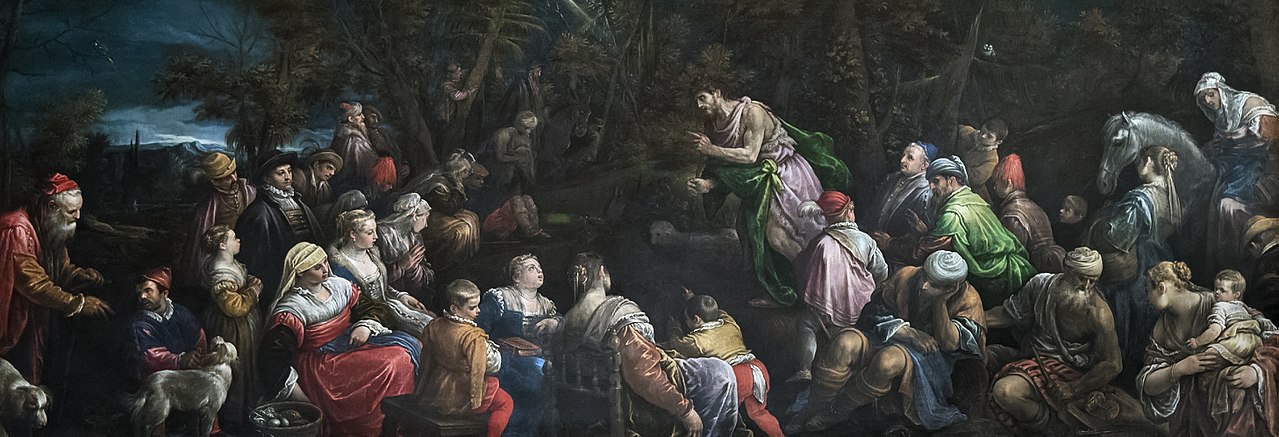Luke 3:1-18
Reflect:
In the Old Testament, sin is not something strictly immaterial or ethereal. Israel’s sin is best described as a systemic way of living as a people among peoples. This is manifested primarily in Israel’s resistance to the social order prescribed by God in Israel’s law. This law is gifted to them by God to regulate their identity- it defines how they are to live as a community in relationship with other communities.
As the Old Testament attests, Israel’s resistance to this social order comes with disastrous consequences. Countless injustices from both inside the community and out spill across generations as poverty, famine, drought, barrenness, and exploitation run rampant throughout Israel’s history.
It is Israel’s way of living as a people- how they treat one another, their neighbors, and their land- that results in patterns of social corruption and political oppression. Such is the way of hostility towards our neighbors and one another.
Biblically speaking, sin is not a personal problem any less than it is a social one, nor is the forgiveness of sins a spiritual matter any more than it is a material one.
John’s arrival on the outskirts of Judea in Luke 3 is strategically situated within the volatile political landscape of Israel’s day (3.1-2). It is here where he appears, “preaching a baptism of repentance for the forgiveness of sins” (3.3).
When the crowds going out to be baptized by him question him as to what they are to do, John exhorts them to live in such a way as to “bear fruit consistent with repentance” (3.8), commanding them to live in a way that pushes back against their long-standing resistance to God’s social order.
Repentance, in John’s terms, has social, material, and economic consequences: “The one who has two tunics is to share with the one who has none, and the one who has food is to do likewise” (3.11); to tax collectors, he says, “Collect no more money than what you have been ordered to” (3.13), and to soldiers he says, “Do not extort money from anyone, nor harass anyone, and be content with your wages” (3.14).
John is calling upon the crowds to repent of the unjust patterns of living as a people that they have inherited over so many generations, and to instead pursue the justice commanded by God.
This is how the “way of the Lord” is prepared, and the “rough road is made smooth” for the coming Kingdom of God- the final healing of Israel’s social and material conditions.
And such healing has never been limited to Israel alone. As with Israel’s sin, there is no “personal” transformation for Israel that does not affect her neighbors as well, nor has Israel’s God constrained His blessing to His chosen people at the expense of all other peoples and communities.
Instead, the blessing of Israel’s God to the whole world comes directly through Israel’s own promised future, wherein “He who is coming” (3.16) will usher in a future of final healing and peace between all the peoples of the world (Isa. 11.1-9).
In recent days, many of us have woken up to the reality of our own participation in corrupt cycles of injustice. In preparation for celebrating He who has come, let us reflect on the words of John and prayerfully seek to “bear fruit consistent with repentance.”
Marcus Hatcher


 RSS Feed
RSS Feed